en ja es pt
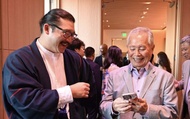
identity
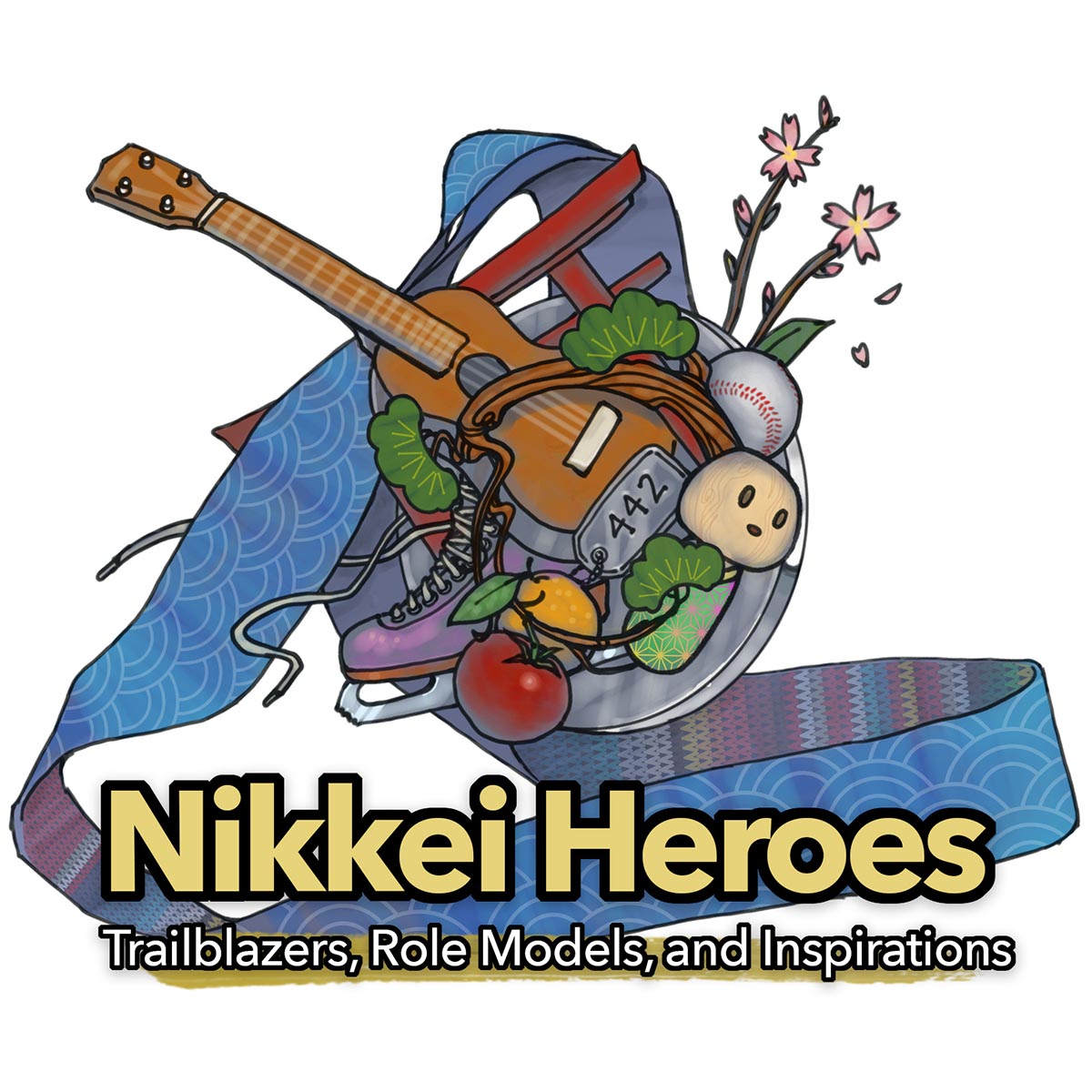
The word “hero” can mean different things to different people. For this series, we have explored the idea of a Nikkei hero and what it means to a variety of people. Who is your hero? What is their story? How have they influenced your Nikkei identity or your connection to your Nikkei heritage?
We solicited stories from May to September of 2019, and voting closed on November 15, 2019. We received 32 stories (16 English; 2 Japanese; 11 Spanish; and 3 Portuguese) from individuals in Argentina, Australia, Brazil, Canada, Japan, Mexico, Peru, and the United States.
Thank you very much to everyone who submitted their Nikkei Heroes stories!
For this series, we asked an editorial committee to pick their favorites and our Nima-kai community to vote for their favorite stories. Here are their favorites!!
English | Japanese | Spanish | Portuguese
English:
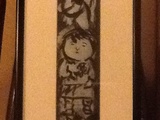
Comment from Dan Kwong
Edna Horiuchi’s essay about Mine Okubo struck me on several levels: one, the importance of shedding new light on an extraordinary Nisei woman artist and her powerfully compelling creation, Citizen 13660; two, the journey of personal exploration undertaken by Edna herself; and three, the happy intersection of these two in the end. It was wonderful to read how one woman’s determination inspired the other, and reminds us that we never know how our creative efforts in life may impact someone, somewhere, someday.
Edna’s appreciation and respect for Mine’s choices as a female artist resonated strongly with me as I was raised by a Nisei mother, Momo Nagano, who also had to overcome the traditional expectations of (and limitations on) a woman in order to fulfill her desire to be an artist.
Both Mine’s and Edna’s stories are about women following a path of self-discovery and finding ways to share it with others — Mine Okubo through her art and writing, and Edna Horiuchi through her community activism. How perfect that they connected with each other.
Japanese:
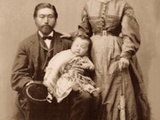
My Roots—The Legacy of Matsugoro Ohto
By Naori Shiraishi
Comment from Masako Miki
Ms. Naori Shiraishi's essay follows her ancestor Matsugoro Ohto, who moved to California as one of the founders of Wakamatsu Tea and Silk Colony exactly 150 years ago. This essay shows her research process about her ancestor. It was truly enjoyable experience to read this since both Mr. Ohto's life and her research process were exciting. I felt so sorry that the story came to an end, reading it in one sitting.
When we research something, we sometimes experience one finding brings another connection. Through learning new things, we encounter wonderful moments to see how our past connect to what we are now. We also meet people who are willing to help us to research. We sometimes feel isolated in this vast society, history, or among people... yet, researches can tell us we are not disconnected from others. We are here because of other people existed before us, because of the history. Ms. Shiraishi essay represents the epitome of Discover Nikkei. History can live again when someone like her tells it.
Spanish:
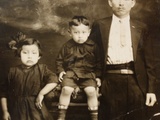
My Hero: Kiyoshi Kuwahara
By Fuyiko Kuwahara
Comment from Harumi Nako Fuentes
The stories shared through this call for submissions have enabled us to learn about some impressive characters, including some who are well-known in the public sphere, and others who are more anonymous. But all of these life stories make it clear that they are heroes, women and men who have inspired others and left their mark.
This is definitely the case with Kiyoshi Kuwahara, a Japanese immigrant who arrived in the city of Iquique, Chile in the early 1910s and whose story is revealed to us by his granddaughter Fuyiko. Through her, we discover not only the person who has become her “personal hero” but also the significance of the search for her roots, which led her all the way to Kumamoto, where her grandfather grew up.
The story is well documented, but also full of nostalgia and affection. She starts by revisiting childhood memories more than 50 years later and then asks the questions that so many other Japanese descendants have posed: Where did my grandfather come from? Why did he emigrate? What she learned increased the author's admiration for that person whose teachings she still carries with her today.
Portuguese:
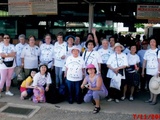
Miyoko Fujisaka, 95 years old—Our Heroine
By Iraci Megumi Nagoshi
Comment from Andre Kondo
The definition of a hero is generally attributed to fictional characters, some gifted with superpowers, or to a person that saves another under in peril. The three submitted stories in Portuguese do not follow such stereotypes, focusing on the lives of seemingly common people. However, precisely because of that, the texts become interesting, for showing that just living with dignity already can be considered as a heroic act.
Each text has its own quality, but the select one of this edition is from Iraci Megumi Nagoshi, which tells the story of Miyoko Fujisaka's life. The biographical text is based on a well-constructed timeline, that could be expanded into a full book, taking into account that, in general lines, the material is rich and interesting. Iraci did not use lyrical juggling with words, presenting an objective text. Even so, the story is touching, precisely for presenting Miyoko's life as more natural as possible, with the emotion residing in the day-to-day life of this woman.
Moreover, in this story, the typical difficulties of the heroic narratives are not specifically related to Isseis, but also to immigrants from other nationalities, raising universal empathy during the reading. At a young age, Miyoko becomes a widow, with four children to raise. From that point, we accompany this young mother´s strength, that goes on living with inspiring determination. It should be noted that in a time when being a woman involved higher difficulties than nowadays, winning over all that entitles Mrs. Fujisaka to be considered a true hero.
We have closed submissions for this series, but you can still share your story on Discover Nikkei. Please check our Journal submission guidelines to share your story!
We're deeply grateful for the participation of our Editorial Committee:
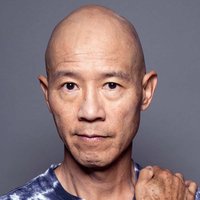 Dan Kwong is an award-winning multimedia performance artist/director/writer who has presented his work nationally and internationally since 1989. His first book FROM INNER WORLDS TO OUTER SPACE: The Multimedia Performances of Dan Kwong, was published in 2004, and the significance of his work is acknowledged in A History of Asian American Theatre (2006). Kwong is a graduate of the School of the Art Institute of Chicago, a Resident Mentor Artist at 18th Street Arts Center, and serves as Associate Artistic Director for the LA-based multicultural performing arts organization Great Leap.
Dan Kwong is an award-winning multimedia performance artist/director/writer who has presented his work nationally and internationally since 1989. His first book FROM INNER WORLDS TO OUTER SPACE: The Multimedia Performances of Dan Kwong, was published in 2004, and the significance of his work is acknowledged in A History of Asian American Theatre (2006). Kwong is a graduate of the School of the Art Institute of Chicago, a Resident Mentor Artist at 18th Street Arts Center, and serves as Associate Artistic Director for the LA-based multicultural performing arts organization Great Leap.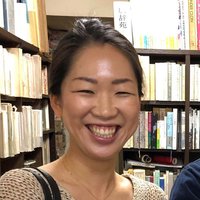 Masako Miki is the External Relations Officer (Japanese) at the Japanese American National Museum. She is responsible for marketing, PR, fundraising, and visitor experience development for the Japanese speaking community. She also works as a freelance editor, writer, and translator. Prior to coming to JANM, she worked as Deputy Editor in Chief for a Japanese community magazine Lighthouse in Los Angeles and staff editor for a Japanese contemporary poetry magazine Gendaishi-techo in Japan.
Masako Miki is the External Relations Officer (Japanese) at the Japanese American National Museum. She is responsible for marketing, PR, fundraising, and visitor experience development for the Japanese speaking community. She also works as a freelance editor, writer, and translator. Prior to coming to JANM, she worked as Deputy Editor in Chief for a Japanese community magazine Lighthouse in Los Angeles and staff editor for a Japanese contemporary poetry magazine Gendaishi-techo in Japan. Harumi Nako Fuentes has a B.A. in Communication Studies with an emphasis in journalism from the University of Lima. She has worked at both public and private institutions—as a teacher, media analyst, editor, and publisher of several publications. She has also taken specialization courses in brand image and marketing, and has a degree in Cultural Management. Currently, she is the Communications Manager at the Japanese Peruvian Association (APJ), editor of Kaikan magazine, and a member of the editorial board of the APJ Editorial Fund.
Harumi Nako Fuentes has a B.A. in Communication Studies with an emphasis in journalism from the University of Lima. She has worked at both public and private institutions—as a teacher, media analyst, editor, and publisher of several publications. She has also taken specialization courses in brand image and marketing, and has a degree in Cultural Management. Currently, she is the Communications Manager at the Japanese Peruvian Association (APJ), editor of Kaikan magazine, and a member of the editorial board of the APJ Editorial Fund.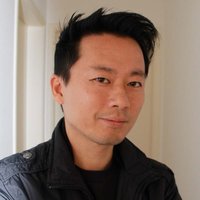 Andre Kondo is Japanese Brazilian, author of ten books, including The little Samurai (Honorable Mention João-de-Barro Prize and finalist of Jabuti Prize), Tales of the Rising Sun (Bunkyo Prize), and Tales of the Renascent Sun (Humberto de Campos Prize). With more than 300 literary prizes, his texts have been translated into Japanese. Post-graduated from University of Sydney, he traveled through more than 60 countries in search of inspiration for his writing. He lived in Japan, visiting its four largest islands. He is the Telucazu Editions publisher and vice president of Nikkei Bungaku of Brazil/ANBLA. He lives on literature.
Andre Kondo is Japanese Brazilian, author of ten books, including The little Samurai (Honorable Mention João-de-Barro Prize and finalist of Jabuti Prize), Tales of the Rising Sun (Bunkyo Prize), and Tales of the Renascent Sun (Humberto de Campos Prize). With more than 300 literary prizes, his texts have been translated into Japanese. Post-graduated from University of Sydney, he traveled through more than 60 countries in search of inspiration for his writing. He lived in Japan, visiting its four largest islands. He is the Telucazu Editions publisher and vice president of Nikkei Bungaku of Brazil/ANBLA. He lives on literature.Thanks to Jay Horinouchi for designing our logo, and our wonderful volunteers and partners who help us review, edit, upload, and promote this project!
Disclaimer: By submitting your story, you are granting Discover Nikkei and the Japanese American National Museum permission to post your article and images on DiscoverNikkei.org, and potentially other publications in print or online affiliated with this project. This includes any translations of your work in association with Discover Nikkei. You, the writer, will retain copyright. Check Discover Nikkei’s Terms of Services and Privacy Policy for more details.